Woodland Trust 2022 Tree of the Year contenders revealed
- Published
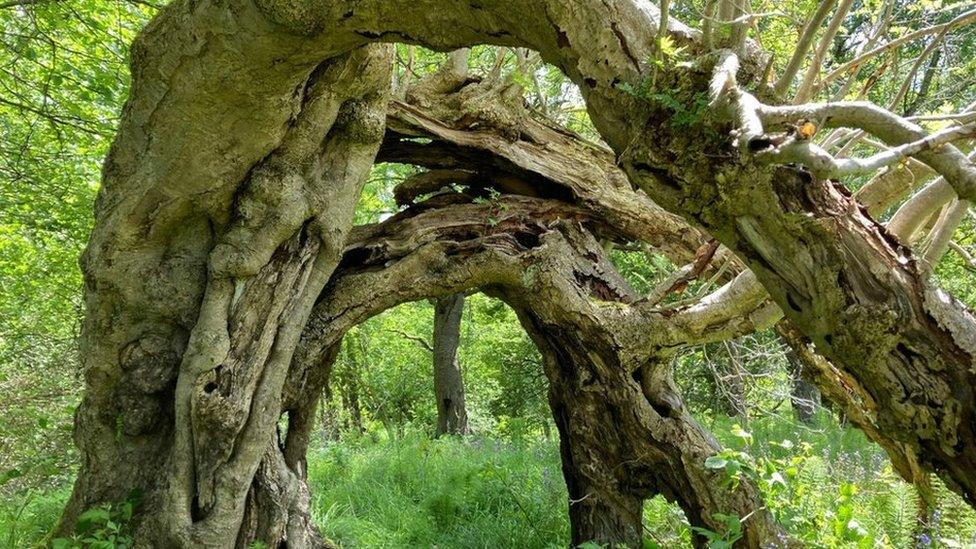
This striking rowan, in Midlothian, has bent over to form a full archway
Five giant oaks, one of which is said to have helped inspire C.S. Lewis's fantasy land Narnia, and a spectacular Derbyshire horse chestnut are among the specimens in the running to be crowned Tree of the Year 2022.
Conservation charity the Woodland Trust selected the 12 trees, with a team of experts and the public.
The trees - from across the UK - have all been recorded on the trust's Ancient Tree Inventory (ATI).
The trust said the trees were awesome.
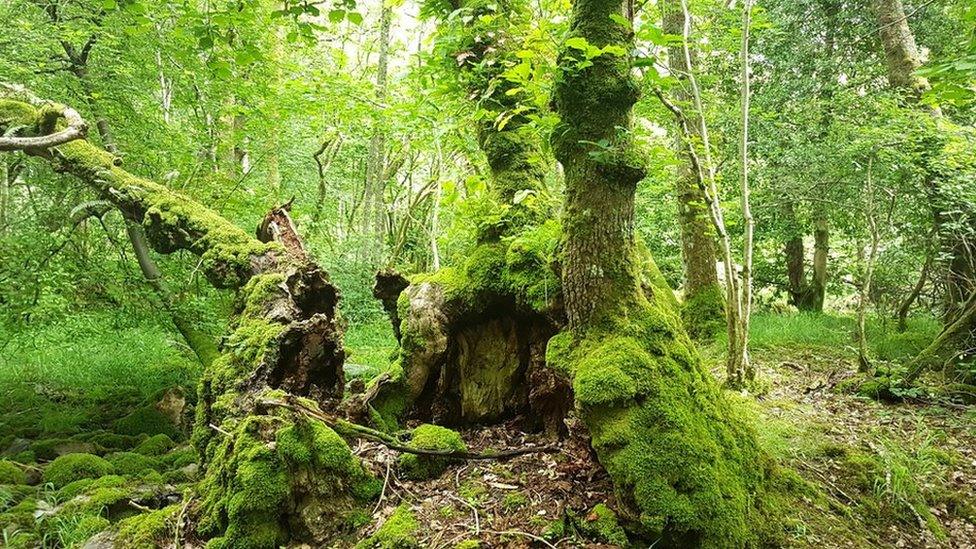
This ancient oak tree can be found in Cumbria
Competition judge Tom Reed said: "The enthusiasm for ancient and veteran trees and the growing number of records being submitted to the ATI in the past couple of years showed just how much people love and value their trees.
"We selected the trees based on their size and significance for their species and also looked for trees steeped in history as well as trees that had high ecological, aesthetic or cultural value.
"It's over to the public to pick a favourite from that impressive list."
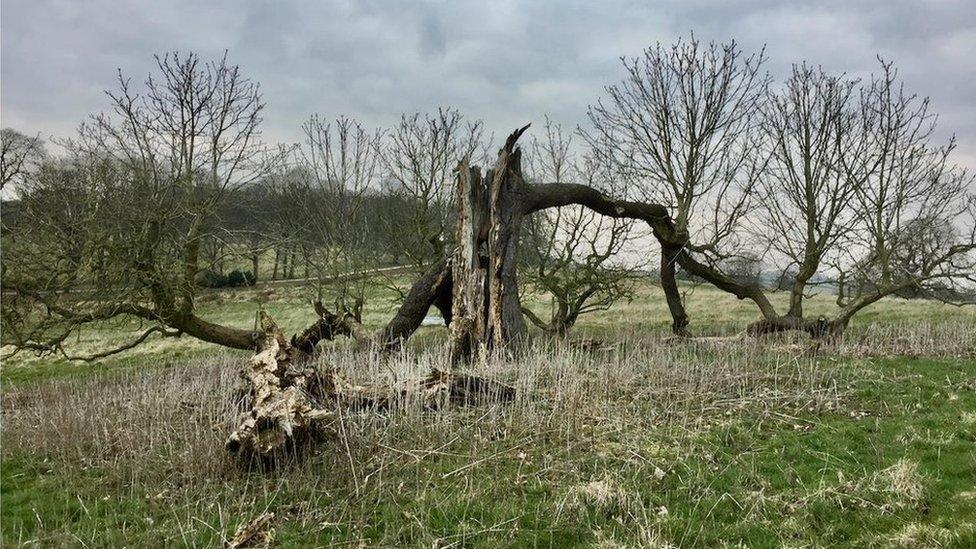
In a process called layering, roots have sprouted from the fallen branches of this Derbyshire horse chestnut
The trust said the competition - which is now in its eighth year - highlights the importance of rare ancient and veteran trees, their role in fighting climate change and biodiversity loss in the UK, and why protecting them is vital for the future of the planet.
Mr Reed added: "Oak trees, in particular, have the ability to steal the limelight as they are such awesome and striking specimens.
"Of course, there are many other equally worthy species.
"All the UK's remaining ancient woodlands and individual trees are crucial in fighting the climate and nature crisis but they are also pieces of history with amazing stories to tell."
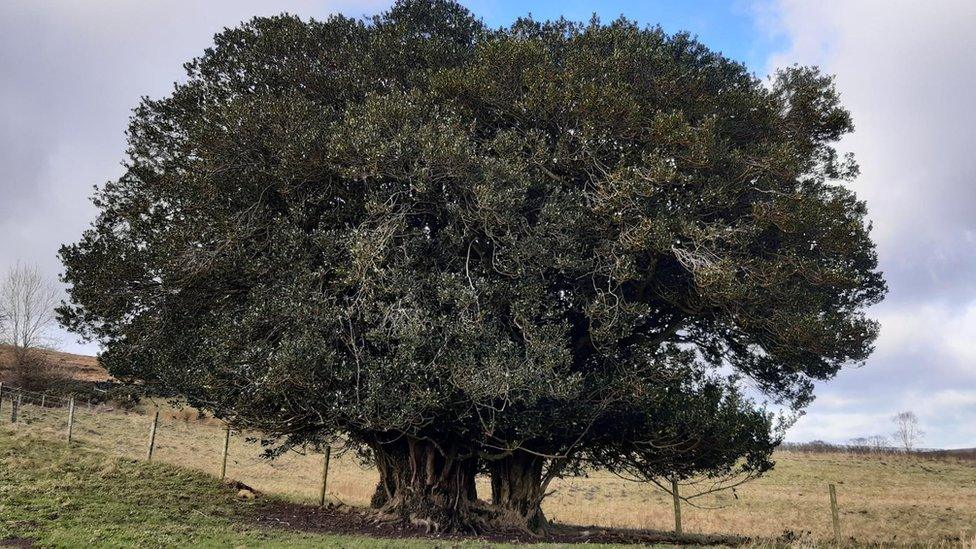
The trust believes the shape of this holly tree suggests it was harvested for many years
Woodland Trust head of campaigning Adam Cormack said: "These trees have significant value.
"Yet very few have legal protection, which currently only comes in very specific circumstances, like if a tree happens to be located in a protected wildlife site."
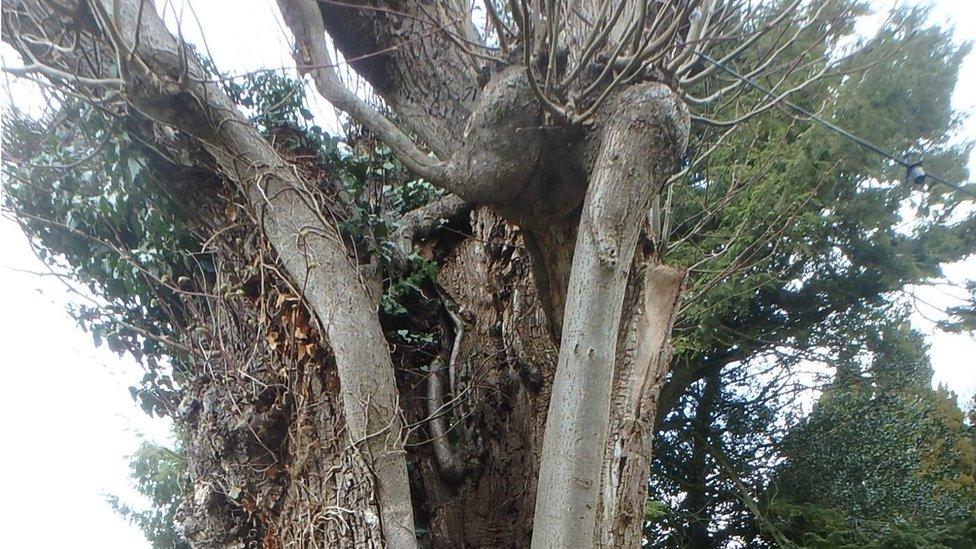
This is one of 12 limes that represent Jesus' apostles in a Gloucestershire churchyard
The trust has opened the competition to voters on its website, which will run until 31 October, with the winner announced on 4 November.
This year's winner will go forward to represent the UK in the European Tree of the Year 2023 contest.

The contenders
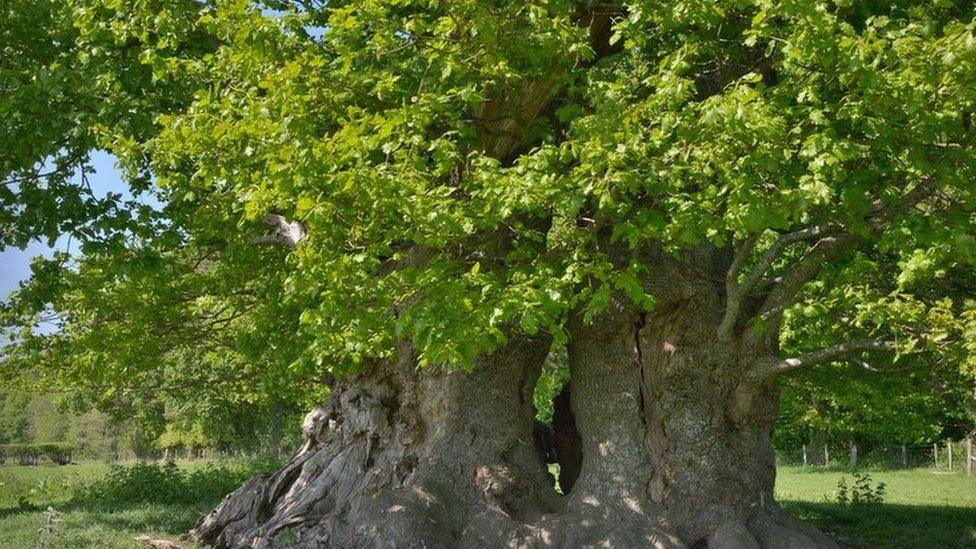
Herefordshire's Escley Oak is between 400 and 500 years old
The Escley Oak, Herefordshire - one of the largest and oldest oaks recorded on the ATI, at least 4-500 years old, this looks as if it is two separate trees that have grown together.
The Flitton Oak, Devon - at about 700 years old, this spectacular ancient oak splays out with eight enormous limbs dripping with moss and lichen - a haven for many species.
Holly on the Hill, Hawnby, North Yorkshire - unusually, this striking holly has a broad rounded crown, a clue that its canopy may have been harvested for many years.
The Burnbanks Oak, Haweswater, Cumbria - the tree's form suggests that it could have some historical connections as an old, coppiced tree that was managed for harvesting timber.
Hedgerow Hawthorn, Colton, Cumbria - this stunning, twisted tree forms part of a small line of hawthorn trees that mark the site of a former land boundary.
The "12 Apostles" Lime, Chipping Campden, Gloucestershire - this spectacular tree is the largest of an avenue of 12 limes planted at St James' churchyard to represent one of the 12 apostles.
Kilbroney Oak, Kilbroney Park, County Down, Northern Ireland - the natural landscape of the Kilbroney estate, with its characterful veteran trees, is believed to have been the inspiration for the fantasy world in C.S. Lewis' Chronicles of Narnia.
The Portal Tree, Loanhead, Midlothian, Scotland - this striking rowan has bent over to form a full archway which now has growth sprouting from its top. It's not known if this tree was deliberately trained into this shape or formed naturally.
The Rolls of Monmouth Oak, Monmouthshire, Wales - a tree that is the largest on the Great Oaks golf course in the Rolls of Monmouth Estate.
Langley Park Chestnut, Langley Park House, Scotland - this tree has a large girth of 7.81m (25ft) and a very old central trunk, surrounded by massive branches.
Layering Horse Chestnut, Kedleston, Derbyshire - the trust believes this horse chestnut was struck by lightning in the past. The original trunk stands hollow and decaying, while the branches have fallen to its sides. In a process called layering, roots have sprouted from the fallen branches, anchoring them to the ground. Eventually, these branches will turn into trees in their own right, all genetically identical to the original parent trunk.
Waverley Abbey Yew, Farnham, Surrey - this yew has roots that grow into and around the ruins of Waverley Abbey - the very first monastery founded in Britain 900 years ago by the reforming Cistercian religious order.

Follow BBC East Midlands on Facebook, external, on Twitter, external, or on Instagram, external. Send your story ideas to eastmidsnews@bbc.co.uk, external.
- Published8 December 2021
